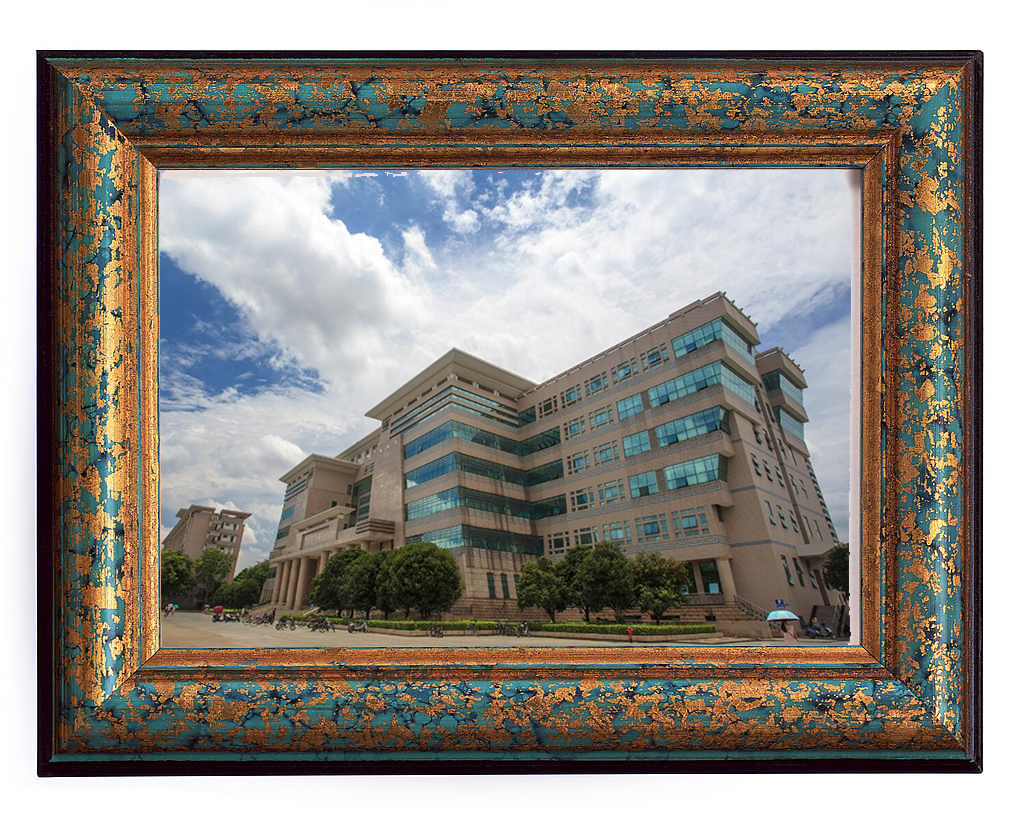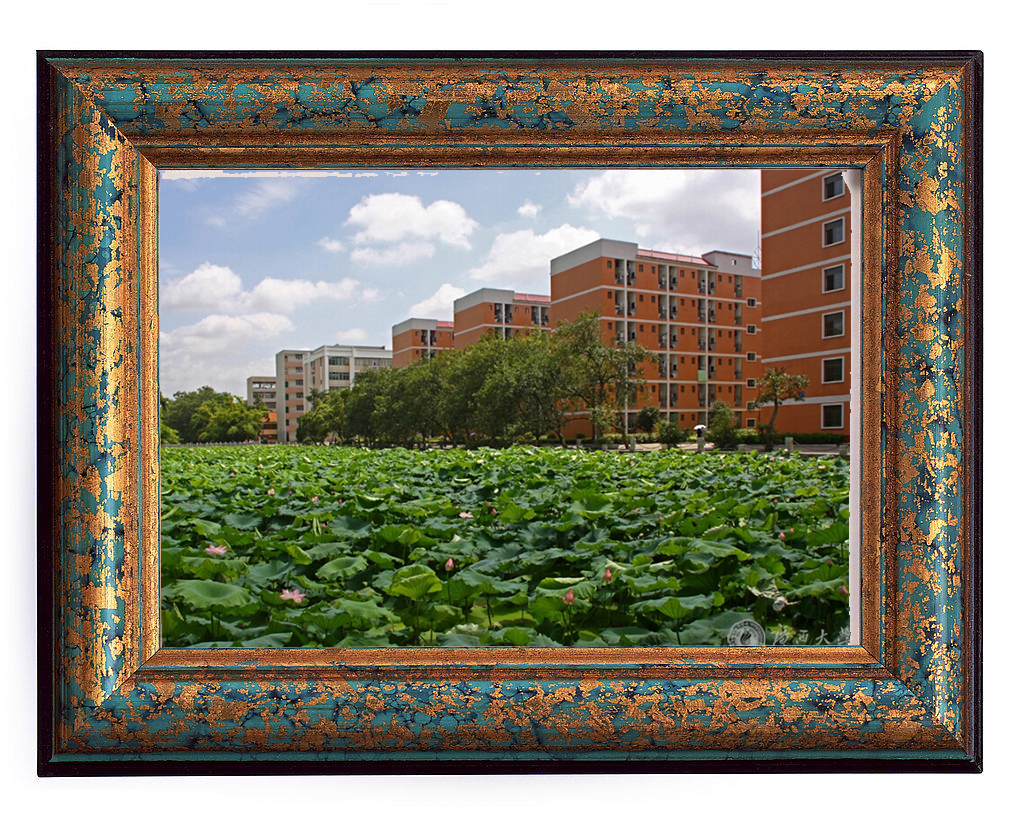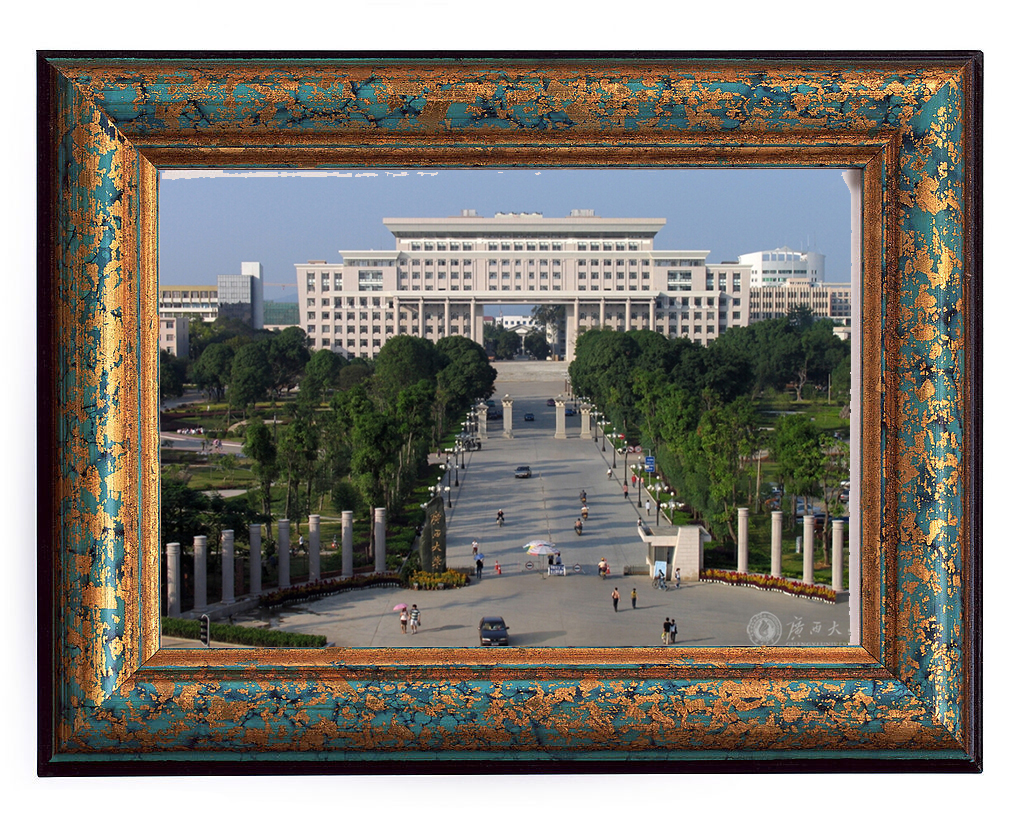
Guangxi University (GXU) is located in Nanning, the capital of Guangxi, which is known as the "Green City of China". It is the only national "211 Project" university in Guangxi, as well as being a "double first-class" construction university, and the co-construction university of the Ministry of Education and People's Government of Guangxi Zhuang Autonomous Region.
Founded in Wuzhou, Guangxi in 1928, GXU became the National Guangxi University in 1939. Its first president was Dr. Ma Junwu, a famous Chinese educator, scientist and democratic revolutionary, who was renowned as "North Cai and South Ma" (Cai: Mr. Cai Yuanpei, the former president of Peking University) and "the great master" in the education field. Besides , a large number of distinguished scholars and educators from the national cultural and educational circles have gathered here to teach, such as Li Siguang, Chen Wangdao, Li Da, Chen Yinque and Liang Shuming. In 1952, Chairman Mao Zedong personally inscribed the name of Guangxi University (in Chinese characters) in his own handwriting and in 1953, it was split and merged into 19 colleges and universities during the adjustment of national colleges and universities. Five years later in 1958, Chairman Mao approved the restoration and reconstruction of GXU. Entering a new era in 1997, it merged with Guangxi Agricultural University to form the new Guangxi University we know today, and was recognized as one of the national "211 project" key construction universities by the Ministry of Education. After two decades, GXU was selected as one of the national "double first-class" universities. Furthermore, in 2018, it became a co-construction university of the Ministry of Education and People's Government of Guangxi Zhuang Autonomous Region. And in 2022, it continued to be selected as the national "double first-class" universities in the second round.
GXU covers an area of more than 21,400 mu (approximately 14,266,666 square meters), including 4,550.7 mu (about 3,033,800 square meters) for the main campus and 16,900 mu (roughly 11,266666 square meters) for Guangxi Subtropical Agricultural Science New Base (an experimental base for agricultural and forestry animal research and teaching), with a total building area of more than 2 million square meters. GXU boasts 25 schools, 24,017 full-time undergraduates, 16,751 full-time postgraduates, 2,785 part-time postgraduates, 1,271 international students and students from Hong Kong, Macao and Taiwan, and 10,967 students in various types of adult education. There are 3,321 faculty members, among whom 585 with senior professional and technical positions, 948 with associate senior professional and technical positions, two full-time academicians of the Chinese Academy of Engineering, 65 candidates for national major talent projects, and 23 recipients of special allowances from the State Council.
GXU offers a full range of disciplines, including philosophy, economics, law, education, literature, science, engineering, agriculture, medicine, administration, arts and the like. It has 38 first-level disciplines and 67 undergraduate programs in 2024, of which 15 adopt enrollment methods according to 7 major categories. Up till now, GXU has one "World-class" construction discipline, two "Co-construction first-class discipline groups”, two national key disciplines, one national key (cultivation) disciplines, 12 Guangxi first-class disciplines, 46 national first-class undergraduate specialities. 9 disciplines including engineering, material science, agronomy, plant and zoology, chemistry, environmental science or ecology, biology and biochemistry, computer Science, and earth sciences are ranked in the top 1% of the global ESI. Moreover, there are 19 first-level discipline PhD programs, one professional PhD program, 38 first-level discipline master programs, 25 professional master programs and 14 postdoctoral research stations in GXU.
GXU owns two national key laboratories, one national international science and technology cooperation base, one national university intellectual attraction platform, two key laboratories and two engineering research centers, one country and regional research base, two province and ministry co-construction collaborative innovation centers, one key laboratory of the State Forestry and Grassland Administration, one international agricultural science and technology innovation institute, one national language promotion base, 45 provincial-and-ministerial science and technology innovation platforms, 4 key research bases of humanities and social sciences, and 13 Guangxi characteristics new Think-Tanks alliance members, to name just a few. Besides, to pursue a new pattern of international collaboration, GXU has signed academic cooperation and exchange agreements with 280 universities and academic institutions in 48 countries and regions around the world, as well as forming a close bond with 90 universities and academic institutions in 10 ASEAN countries.
GXU is committed to conducting scientific and technological innovation and serving the society, among which creative initiatives in nine areas are especially prominent, such as promoting interdisciplinary integration, building leading teams and innovative talents, propelling the amalgamation of industry-academia-research and transformation of scientific research results. These endeavors have produced a number of original achievements with significant impacts. In recent years, the project “the Key Technologies and Applications of Paper and Fermentation Type Wastewater Reuse and Ultra-low Emission” and "Key Technologies and Applications of Large Chlorine Dioxide Preparation System and Elementless Chlorine Bleaching of Pulp" presided over by academician Shuangfei Wang, won the second prize of National Science and Technology Progress in 2016 and the second prize of National Technology Invention in 2019 respectively. The project "the Key Technology Research Team for Large-Span Arch Bridges" led by academician Zheng Jinglian won the second national innovation team medal and the second prize of the 2018 National Science and Technology Progress Award, the 16th China Civil Engineering Zhan Tianyou Award, and the 36th International Bridge Conference (IBC) top award etc. Dr. Xie Fei, a young professor, published their research discovery in one of the world top academic journals Nature in 2022 (Vela Pulsar Wind Nebula X-rays are Polarized to Near the Synchrotron Limit), which is a historic breakthrough since it is the first time that a scholar in Guangxi was able to publish an article in this journal as the corresponding author. Professor Han Linhai was awarded the 3rd National Innovation Award in 2023, and he also received the Science and Technology Innovation Award from the Ho Leung Ho Lee Foundation in the same year. Since 2006, GXU has won 46 scientific and technological awards at the provincial and ministerial levels, one top science and technology award, two special contribution awards for science and technology in Guangxi, two outstanding contribution award for young talent in science and technology in Guangxi, four innovation and leading awards in Guangxi, one excellent engineer award in Guangxi, two second-class awards and four third-class awards for excellent achievements in scientific research (humanities and social sciences) of higher education institutions of the Ministry of Education, and 25 first-class awards for excellent achievements in social sciences in Guangxi.
GXU adheres to socialist orientation in running schools and takes cultivating virtue and nurturing talent as its fundamental task. There are 12 national characteristic specialties, three national-level quality courses, two national bilingual teaching demonstration courses, seven national-level quality open courses, 17 national first-class undergraduate courses. What’s more, 15 disciplines have been selected as "the Excellent Engineer Education and Training Program", "the Excellent Legal Talent Education and Training Program" and "the Excellent Agricultural and Forestry Talent Education and Training Program" granted by the Ministry of Education. Besides, GXU holds three national teaching teams, 17 national first-class undergraduate course teaching teams, two national teaching masters, four national pilot majors for comprehensive reform, one national experimental zone for innovation of talent training mode, five national off-campus practice education bases for college students, and 25 experimental teaching centers. The 25 experimental teaching centers include five national experimental teaching demonstration centers, two national virtual simulation experimental teaching centers. Of particular prominence is that three courses have been recognized as the national first-class undergraduate courses in virtual simulation experimental teaching and a second prize national teaching achievement award in higher education was bestowed in 2018. The university was selected as one of the top 50 universities in China in terms of employment work, one of the top 50 universities in China with regard to innovation and entrepreneurship work, and one of the first batch of demonstration universities in China in respect of deepening innovation and entrepreneurship education reform, and one of the National Innovation and Entrepreneurship Education Practice Bases. More achievements in the areas of innovation and entrepreneurship include three national Gold Medals in the China International College Students' Innovation Competition, one national Gold Medal in the 13th “Challenge Cup” China College Students' Entrepreneurship Plan, and the “Champion Trophy”.
In the future, GXU will adhere to the guidance of Xi Jinping's thought of socialism with Chinese characteristics in the new era, bearing in mind "the greatness of the country", remain true to our original aspiration of "educating people for the Party and country", stick to the mission of "developing Guangxi, rejuvenating China" and the university motto of "diligence and sincerity", and vigorously carry forward the "double first-class" spirit. Furthermore, GXU will continue to focus on the fundamental task of establishing moral education, vigorously implement the top ten projects, and strive to build a double-class university with Chinese characteristics. Rooted in the Guangxi region, with the aim of reassuring the Party, satisfying the people, serving Guangxi, developing the western area of China, GXU will spare no efforts to make greater contributions to building a charming Guangxi in the new era, to constructing China into a strong socialist modern country, and to achieving the second hundred-year goal set by the Party.







